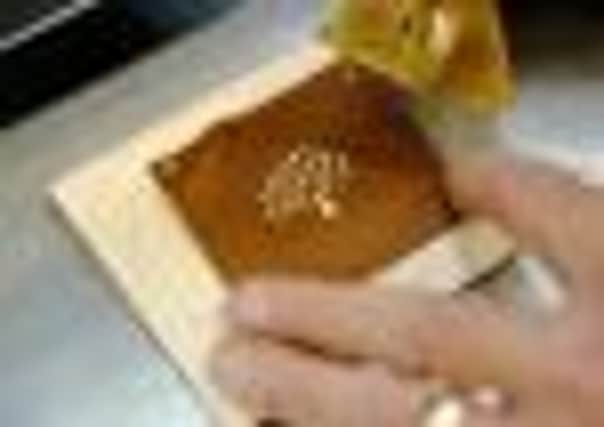The bags to riches story behind Mulberry’s rocketing sales


Thankfully for Mulberry, members of the later group are growing at an unprecedented rate. Yesterday, the firm began by Roger Saul in Somerset three decades ago, announced profits had trebled to £15.6m in the six months to September. Shares are an enviable £13.74 and having opened new stores in New York and Asia it seems someone forgot to tell the company we are living in an age of austerity.
“There is an argument to say that Mulberry has done well because there is a strata of people with money who have been largely unaffected by what’s been happening in the economy, but I don’t think it is as simple as that,” says Catherine Riccomini, regional PR and marketing manager for House of Fraser. “There will always be people who have money, but even in a downturn there are people who prepared to pay for quality and that’s what Mulberry represents. It’s not just a bag, it’s an investment which will last years.”
Advertisement
Hide AdAdvertisement
Hide AdFor most, it’s also eye-wateringly expensive. At £150, a Mulberry leather ID purse is at the cheap end of the scale.
If you want the Alexa messenger and shoulder bag – named after Mulberry’s number one fan the model Alexa Chung – it will set you back around £795. If you want it in haircalf be prepared to part with more than £2,000.
“Yes, their bags are expensive, but that money also buys a certain sense of kudos,” adds Catherine. “It’s not just Mulberry, which is enjoying good times at the moment, in fact all of luxury bags from Aspinal to Paul Smith are selling well.
“We live in a celebrity age, so having someone like Alexa Chung being photographed with one of your bags on her arm can only help sales.”
Advertisement
Hide AdAdvertisement
Hide AdThe Alexa impact was impressive. Sales of the bag rocketed so much so that department store Selfridges sold out many times over and Mulberry was forced to extend its factory just to keep up with demand.
“When something is deemed a must-have then sales snowball and the publicity just feeds the demand.
“However, the real key to success for a brand like Mulberry is that while it might be niche in terms of price, it appeals to a wide variety of people. There isn’t such a thing as a typical Mulberry shopper. Of course, not everyone can afford to buy right at the top end, but if they like that brand what you find is that they are prepared to either save up for a piece or buy a smaller item like a purse or a scarf just to have something with the brand name on.”
Earlier this year, Mulberry opened a new flagship store in London’s Bond Street, but it’s not just British shoppers who apparently can’t get enough of Mulberrry.
Advertisement
Hide AdAdvertisement
Hide AdFounded in 1971, the firm’s range is now sold in 82 countries across the world, including Qatar and the United Arab Emirates, and its revenue from outside the UK has been equally buoyant, rising by 115 per cent to £29.4m.
In the global market, luxury has become big business. Sales of high end goods expected to rise to £164bn by the end of this year, largely thanks to a seemingly insatiable Chinese appetite for the kind of products only large amounts of money can buy.
The country now boasts 500,000 millionaires and by 2020 it is predicted the China will account for 44 per cent of all sales in the luxury goods market.
It’s that growth which has helped the likes of Apple dominate technology sales, but aside from a thirst for the latest mobiles and tablets they have also developed a taste for classic British designs.
Advertisement
Hide AdAdvertisement
Hide Ad“It’s almost become a trend in itself and with the Olympics just around the corner, demand for these heritage brands is only going to increase. Mulberry has benefited from this, but it isn’t alone,” Ms Riccomini added.
“Biba, which was one of the iconic labels of the 1960s and 70s has undergone a real renaissance recently and brands like Jaeger have really come into their own. Of course fashions and trends come and go, but there will always be a market for simple classic designs.”
And, it seems, handbags that cost the earth.